
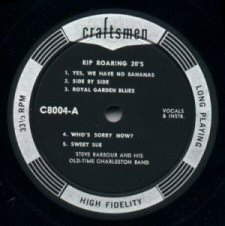
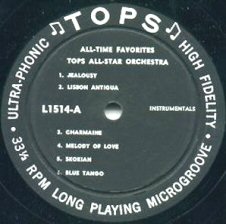
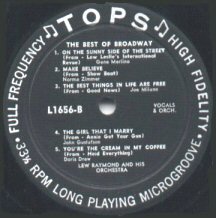
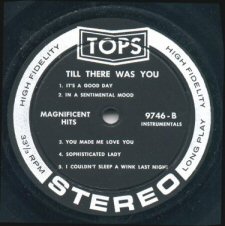
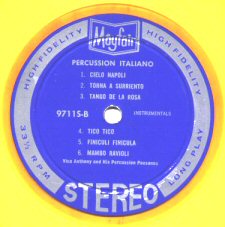
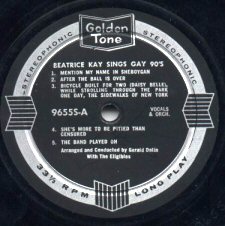
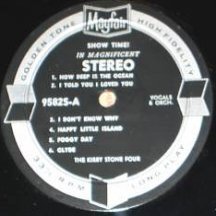
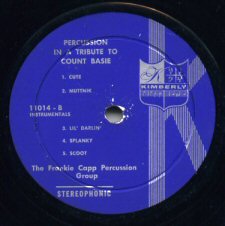
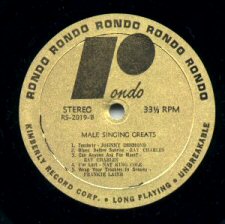
 The Precision Radiation Instruments (PRI) Story
The Precision Radiation Instruments (PRI) StoryPrecision Radiation Instruments, Inc. (PRI) of Los Angeles made geiger counters. They sold
inexpensive models such as the Model 108 "Snooper" and Model 111 "Scintillator," which usually were
packaged with get-rich-quick propaganda to try to cash in on the "uranium rush" in Alaska in the early
1950s. Catalogs used such enticement blurbs as "Finding Fortunes in Uranium." Typical of packaging
was the box for the plastic Model 108, which boasted, "Safe to Use. Find Uranium Ore Deposits. Earn
$35,000 Gov'nt Rewards. No Experience Required." (Hmmm, sounds like the internet spam we get
today...).
With these impeccable sales approaches, it was probably a natural that PRI got into the record business.
By the mid-1950s, P.R.I.'s major source of income, sales of Geiger counters, had gone bust, and their
public stock had plummeted to near worthless. They bought the company Radio Craftsmen, who made
radios and was about breaking even, financially, but this didn't solve P.R.I.'s major solvency problems.
According to Carl Doshay, founder of Tops Records, P.R.I.'s biggest asset was a two-million-dollar tax
loss that could be used against Tops' profits, so in 1958, they merged, with Tops becoming a subsidiary
of P.R.I., at least on paper. The actual running of the record companies, as well as the assets of the
company, seemed to remain with Doshay and the Tops partners.
About 1960, P.R.I., Tops, and the associated labels were bought by a group of investors, with the
operation of the record labels being turned over to Bob Blythe. Within a few years, the company was
bankrupt and was sold to Pickwick.

|

|
Not only were the albums' content on the different labels the same, but even the labels themselves looked similar. The P.R.I. label itself seemed to be a vehicle for Dave Pell, who worked as a producer for Tops and related labels. The P.R.I. label was black with silver print, with a hexagonal stripe around the edge of the label, and the PRI logo at top (two more hexagons, the left with "P.R.I" and the right boasting compatible mono/stereo records). Craftsmen was a nod to Radio Craftsmen, Inc., a Chicago-based manufacturer of radio and hi-fi equipment, whom PRI had purchased before going into the record business with Tops. In fact, for some time, Radio Craftsmen was listed on the albums as the distributor of the various labels. |

|

|
The Tops label was black with silver print. The first label design, used from 1957 until the early 1960s, had "TOPS" at the top around the edge of the label, surrounded by two sets of musical notes (tied eighth notes). Around the edge of the label on the upper left was "ULTRA-PHONIC" (later changed to "FULL FREQUENCY" at about album 1600) and to the upper right "HIGH FIDELITY". Around the edge at the bottom of the label was "33 1/3 RPM LONG PLAYING MICROGROOVE". |

|

|
About 1963, Tops issued a series of albums in stereo in the "Magnificent Hits" series (Tops 1743/9743 to 1766/9766), and used a second label, with a shield on top, a silver band around the edge of the label, with "STEREO" around the bottom edge. Most of the Tops stereo albums, however, were issued on the blue and silver Mayfair label, which usually used colored vinyl (primarily yellow or gold) for its issues. The albums were the same as the Tops mono counterparts, but for some reason, PRI chose to issue stereo on a different label. |

|

|
PRI also had a budget label, Goldentone, which mined the Tops material for reissues. The first ten or so Golden Tone albums were essentially reissues of the Craftsmen first ten albums. Golden Tone also reissued Tops and Mayfair albums, although the Golden Tone/Mayfair reissues used black vinyl and a black label. |

|

|
Another PRI subsidiary was Kimberly Records of New York, who in turn owned Rondo Records. These were 1960s labels that again used Tops masters for some of their releases. In fact, several albums on the Kimberly label by "The Frankie Capp Percussion Group" were the same recordings that had been issued on the PRI label by Dave Pell, with percussion overdubs. Rondo was a label originally out of Chicago, sold to Eli Oberstein in 1954, and ultimately sold to P.R.I. by Eli's son after Eli's death in 1960. |
 On to the P.R.I. Album Discography
On to the P.R.I. Album Discography  On to the Tops/Mayfair Album Discography
On to the Tops/Mayfair Album Discography  On to the Craftsmen Album Discography
On to the Craftsmen Album Discography  On to the Golden Tone Album Discography
On to the Golden Tone Album Discography
 On to the Kimberly Album Discography
On to the Kimberly Album Discography 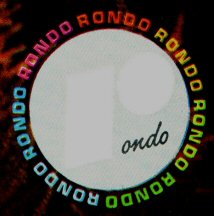 On to the Rondo Records Story
On to the Rondo Records Story  Back to the Discography Listings Page
Back to the Discography Listings Page  Back to the Both Sides Now Home Page
Back to the Both Sides Now Home Page